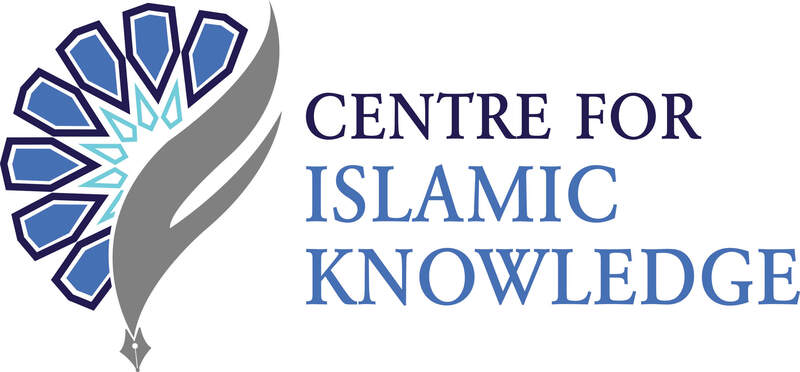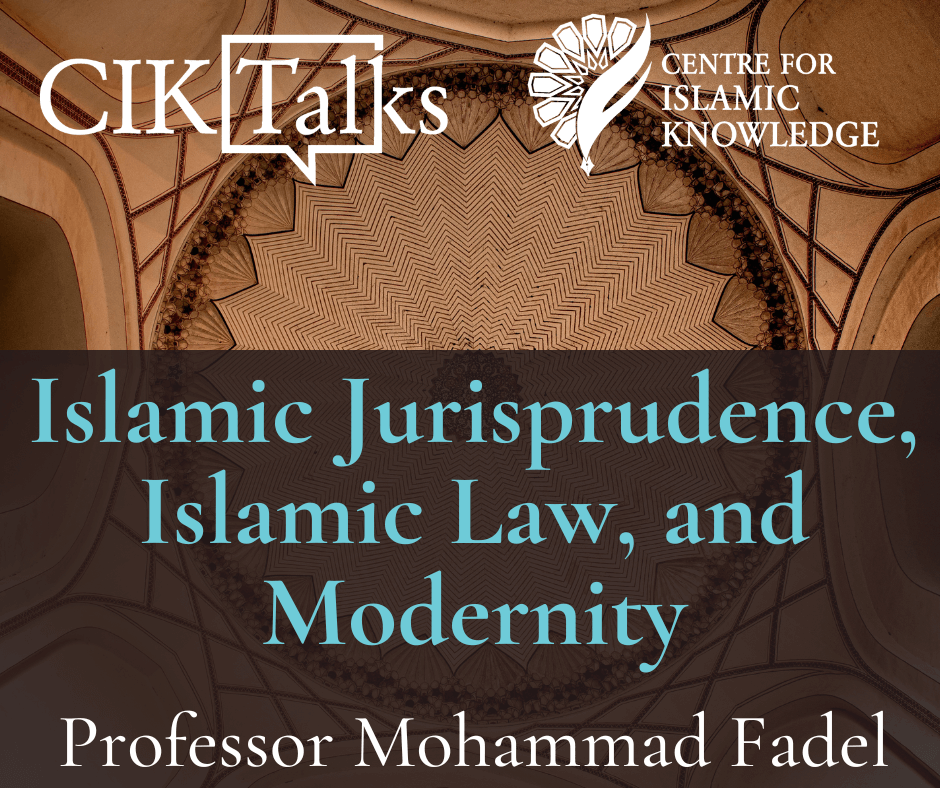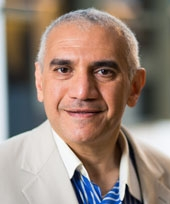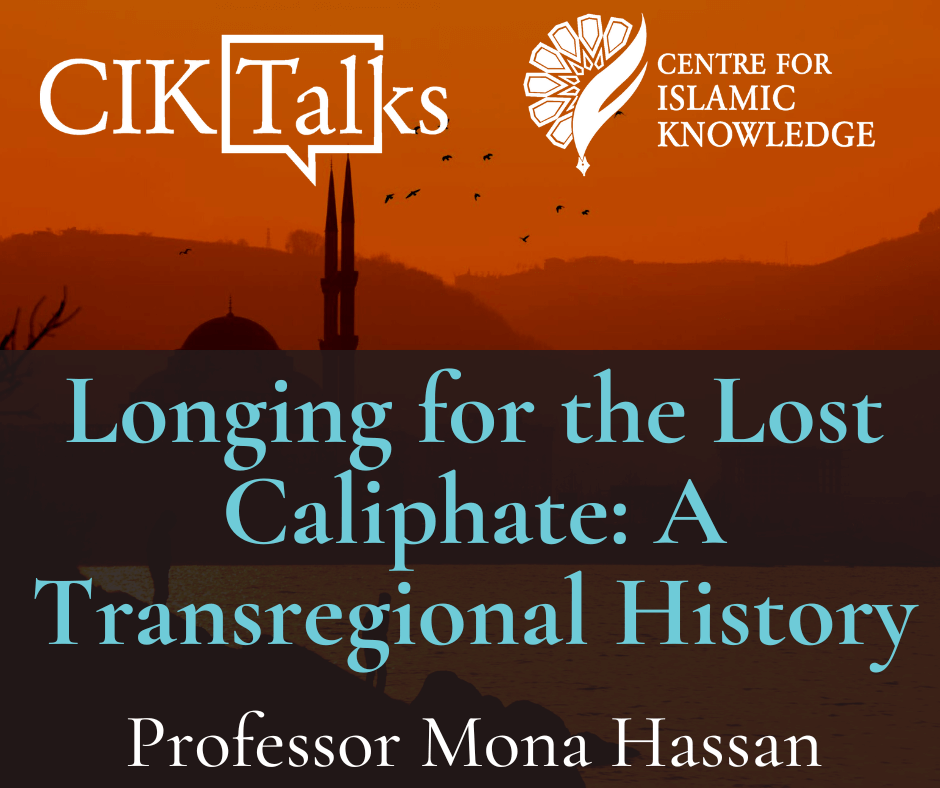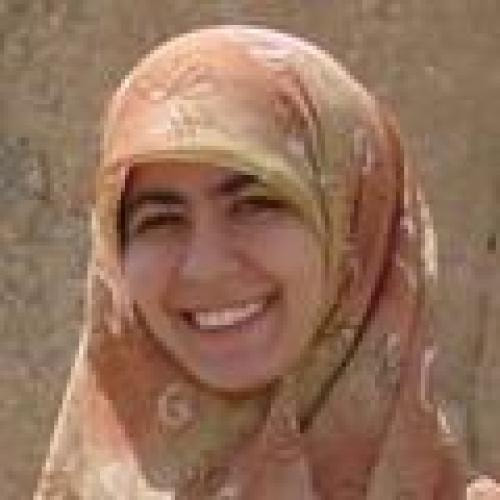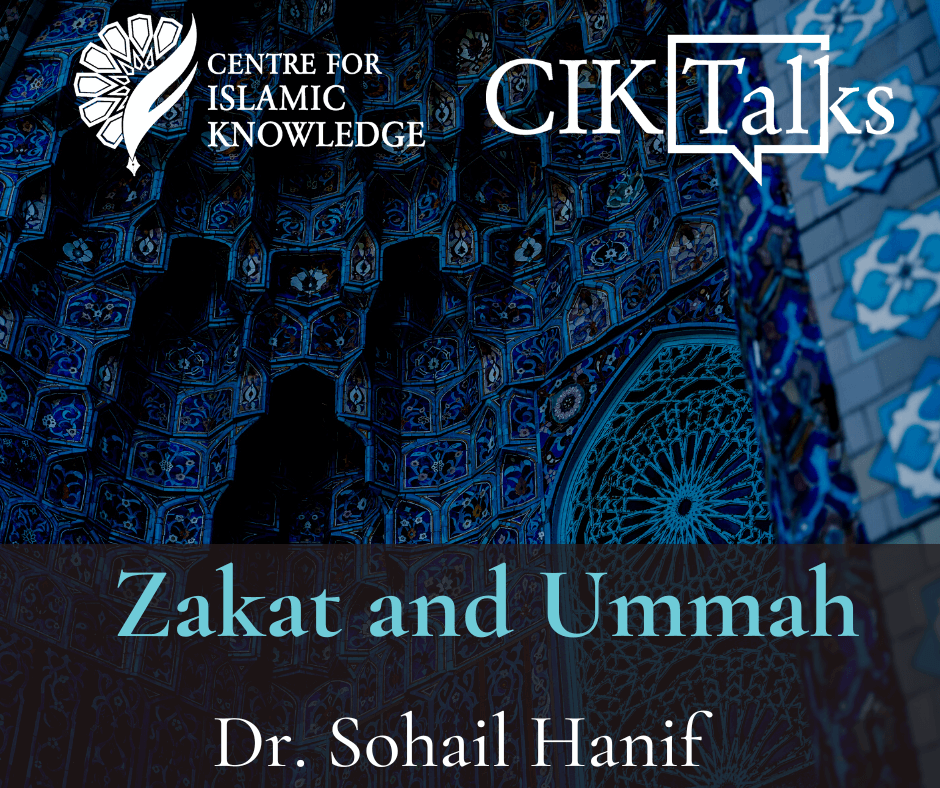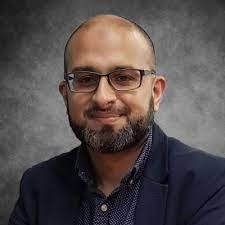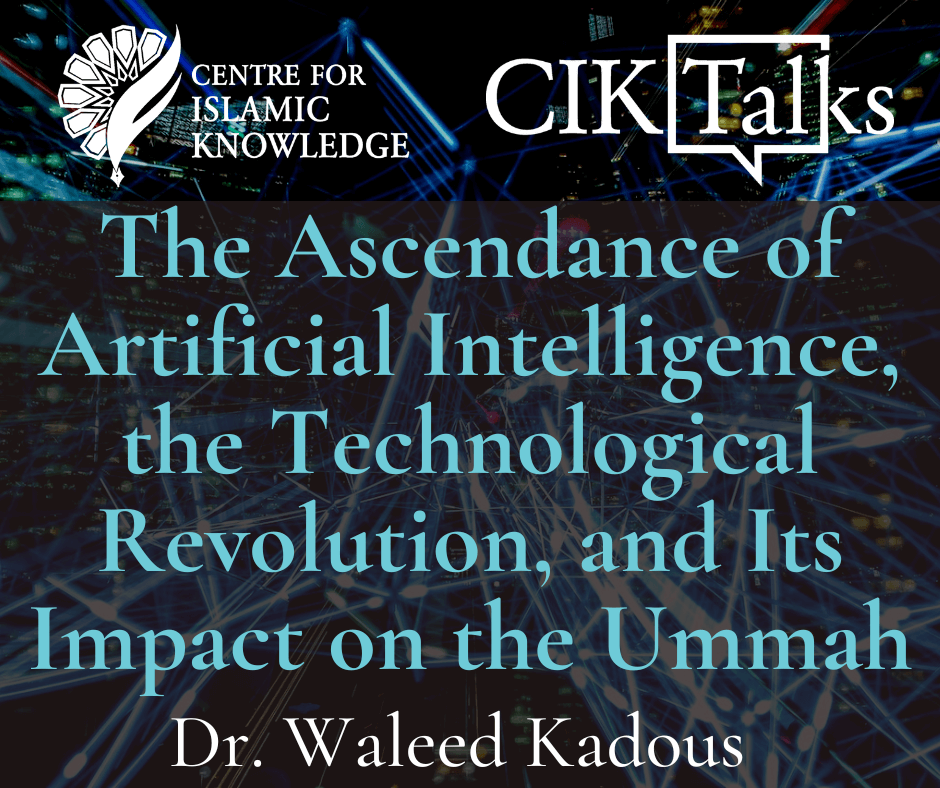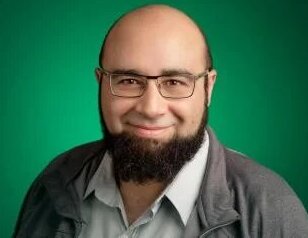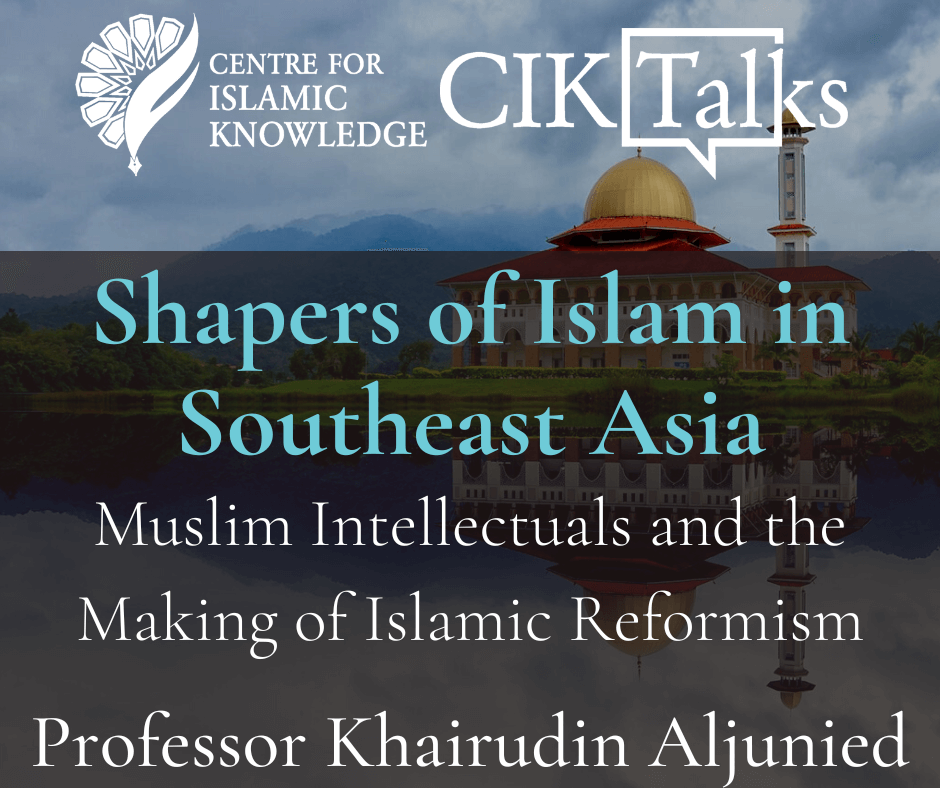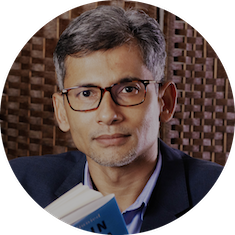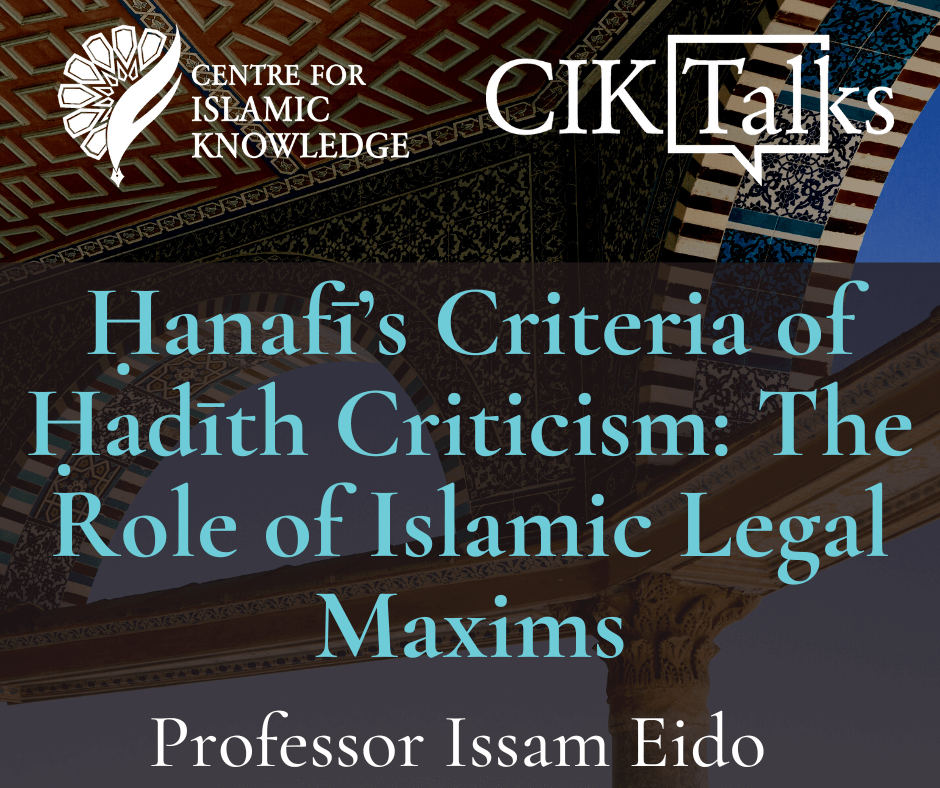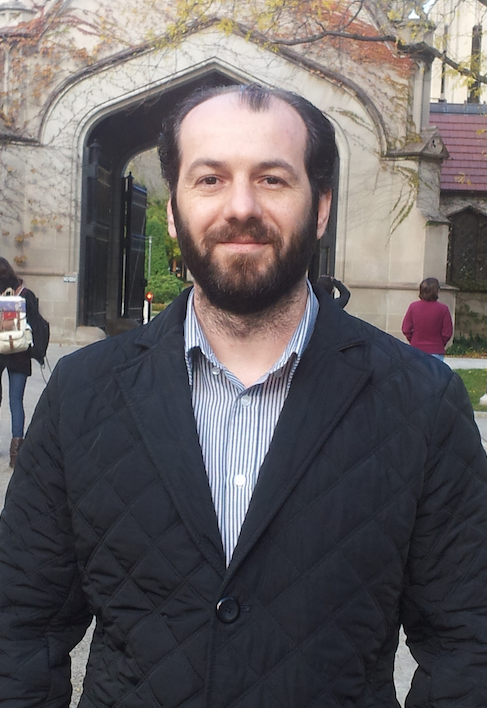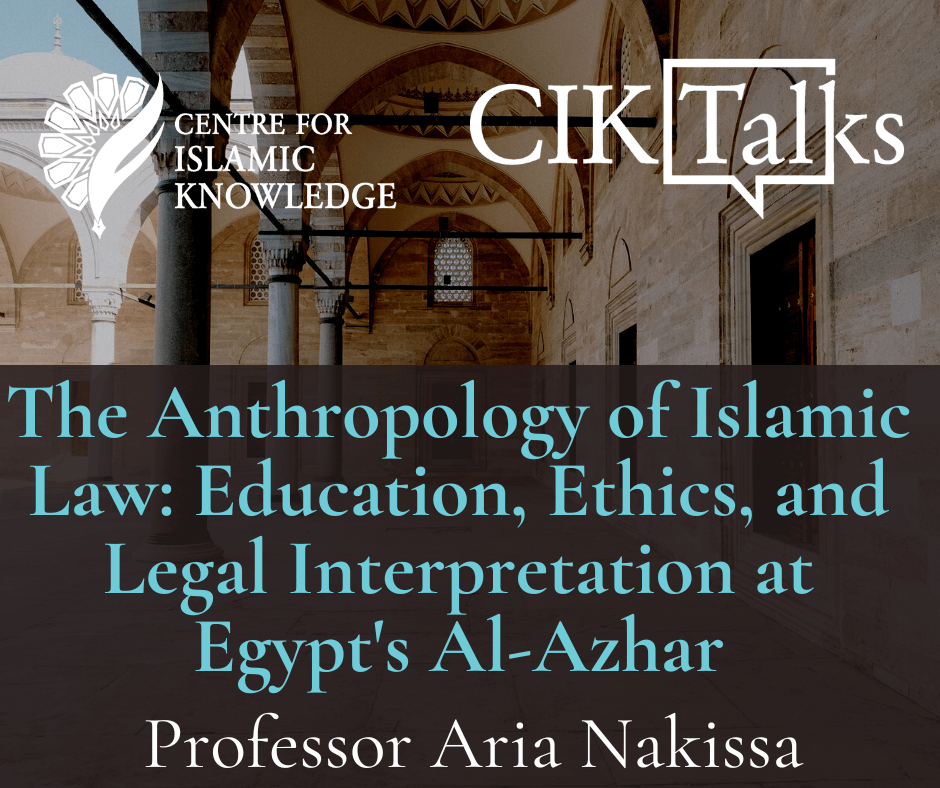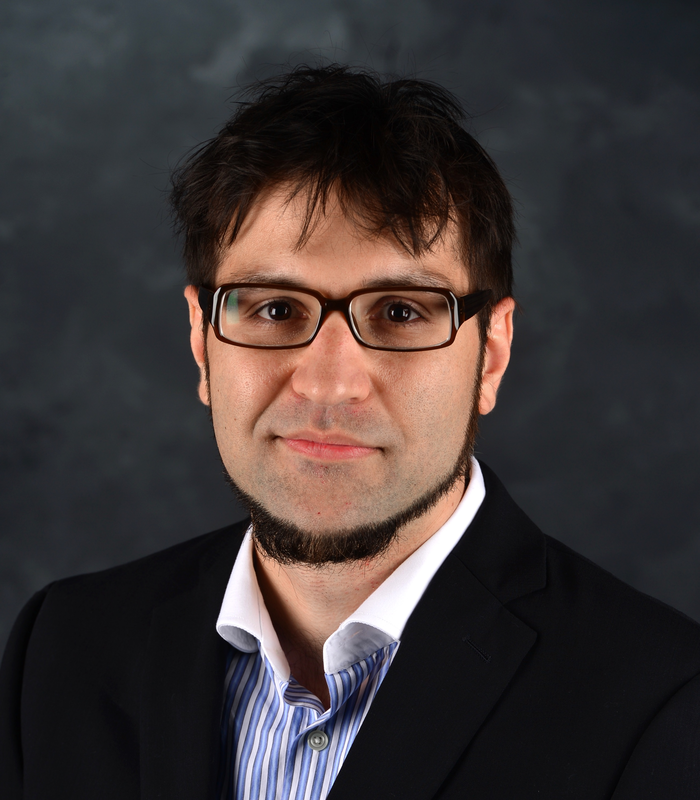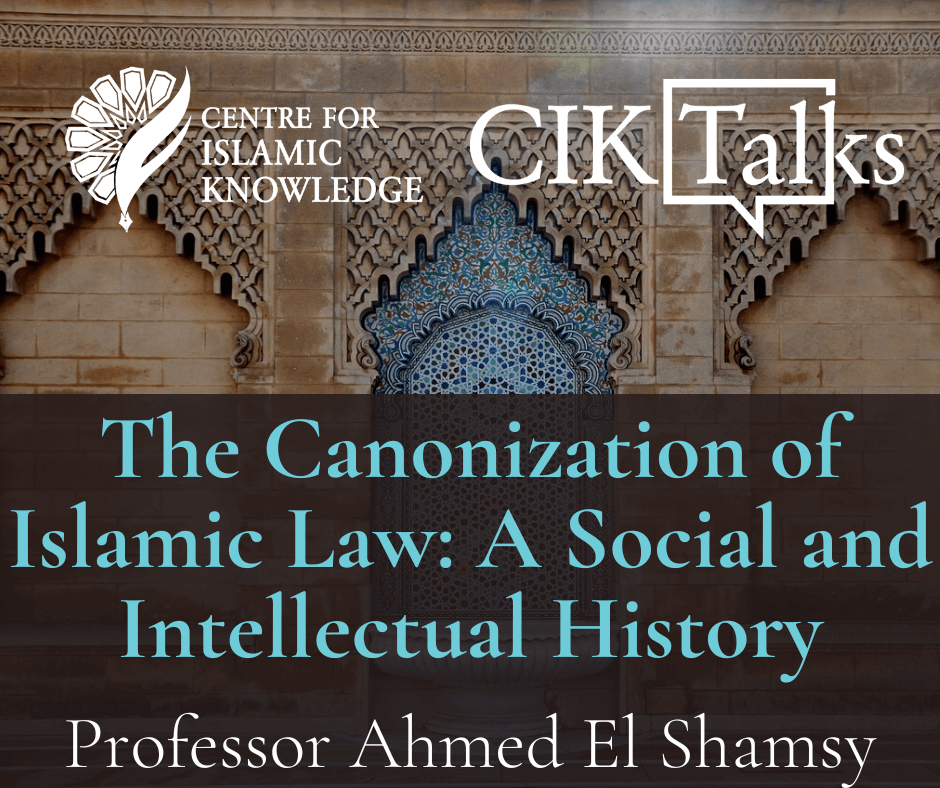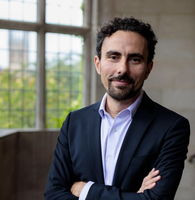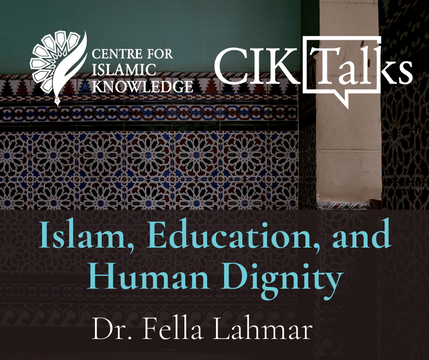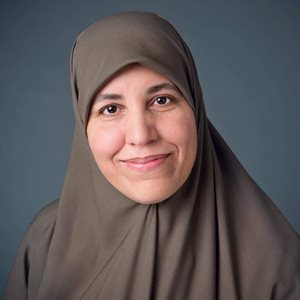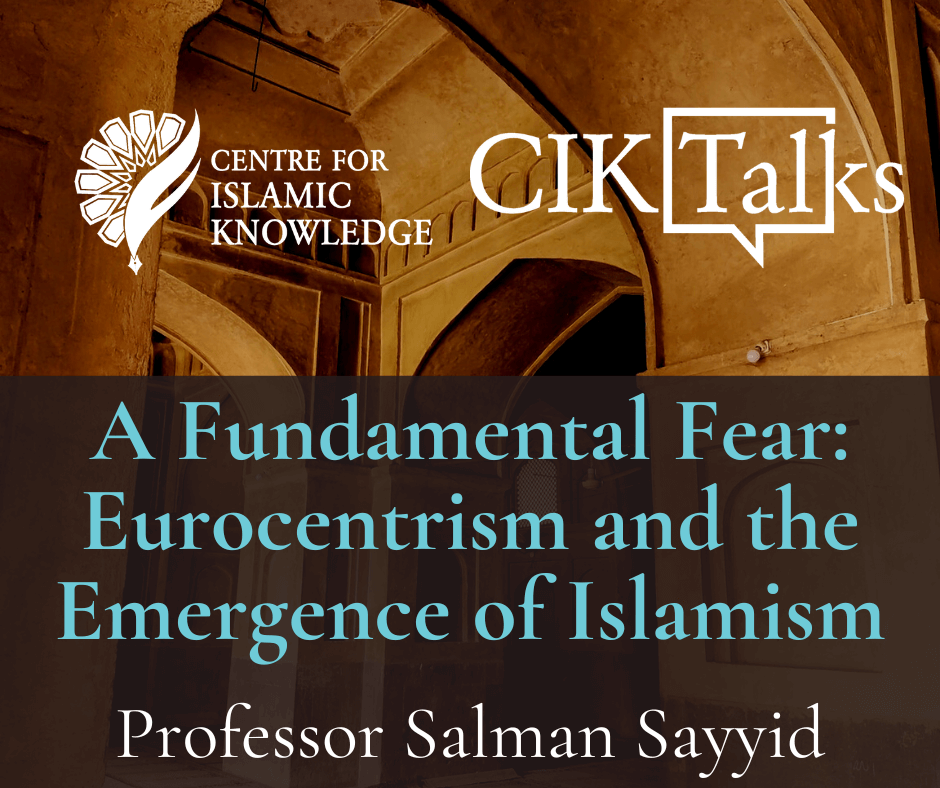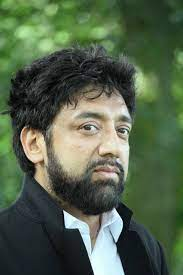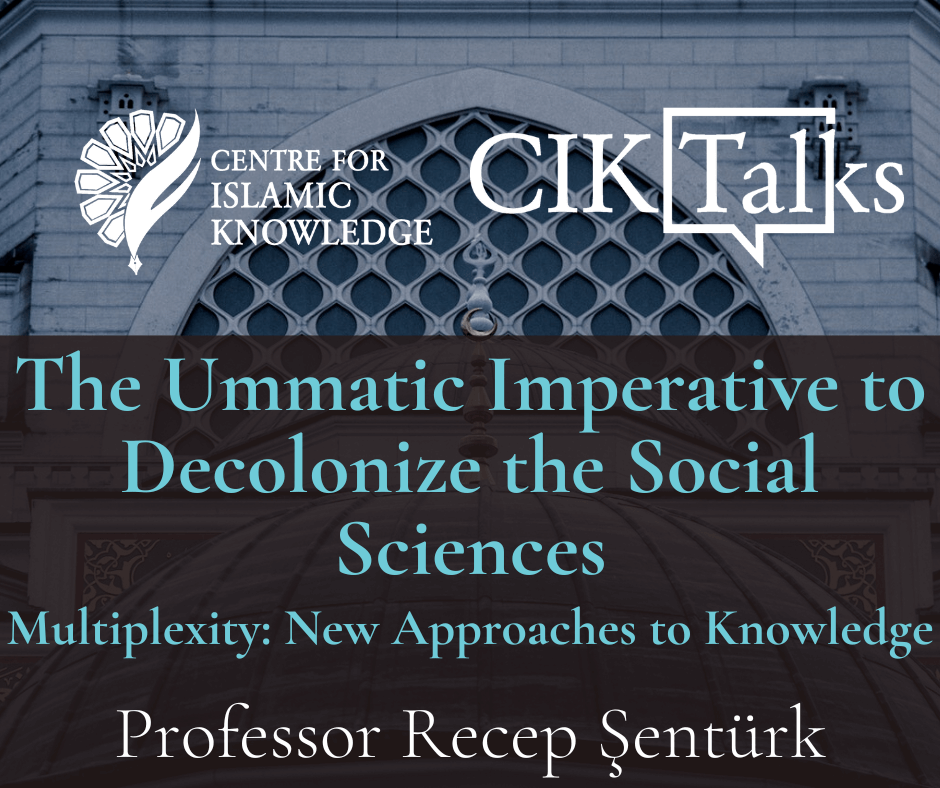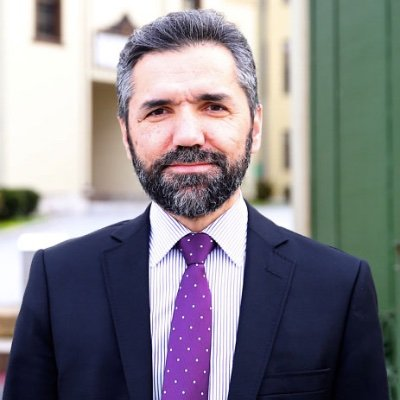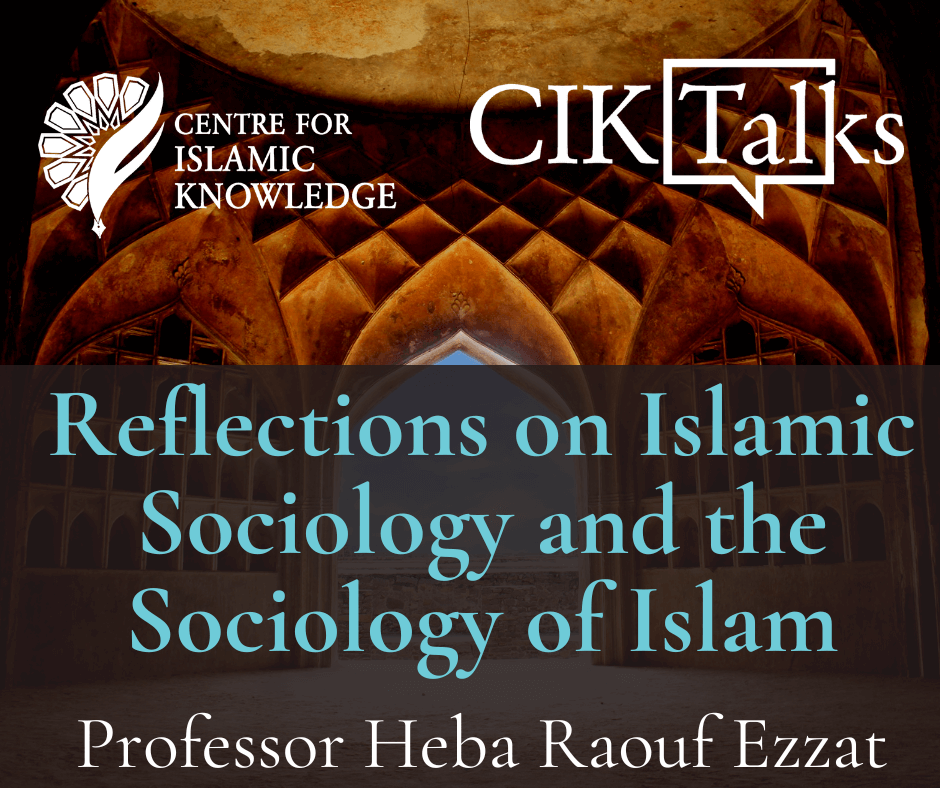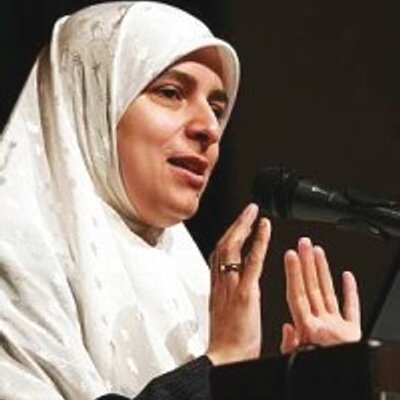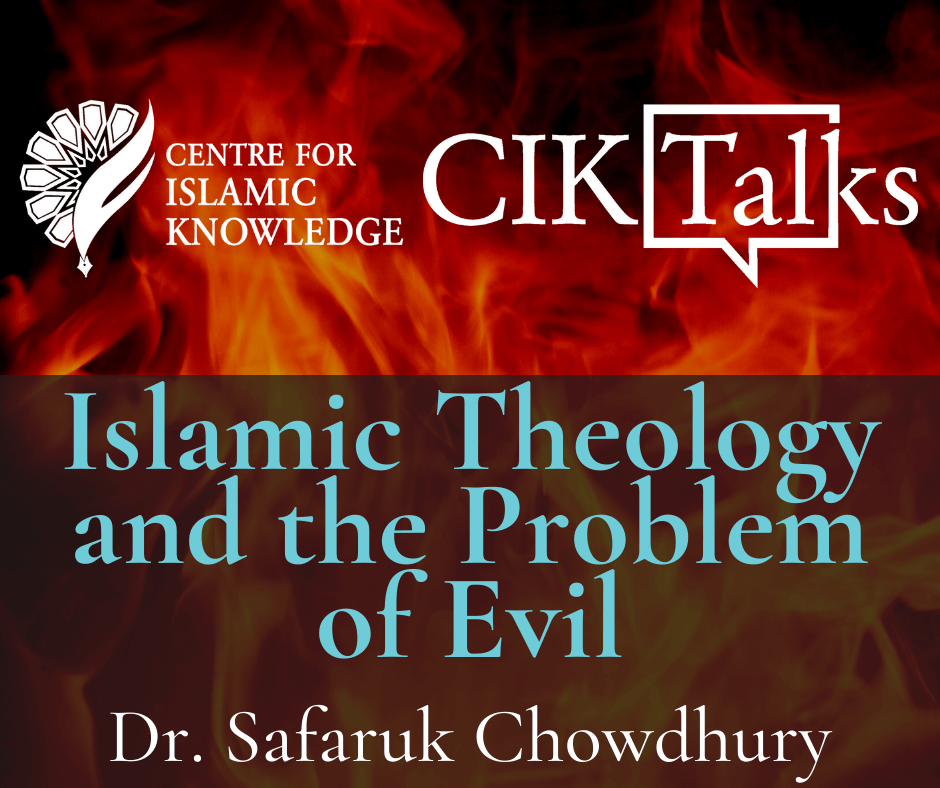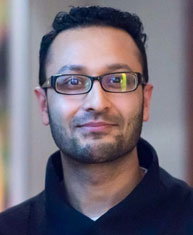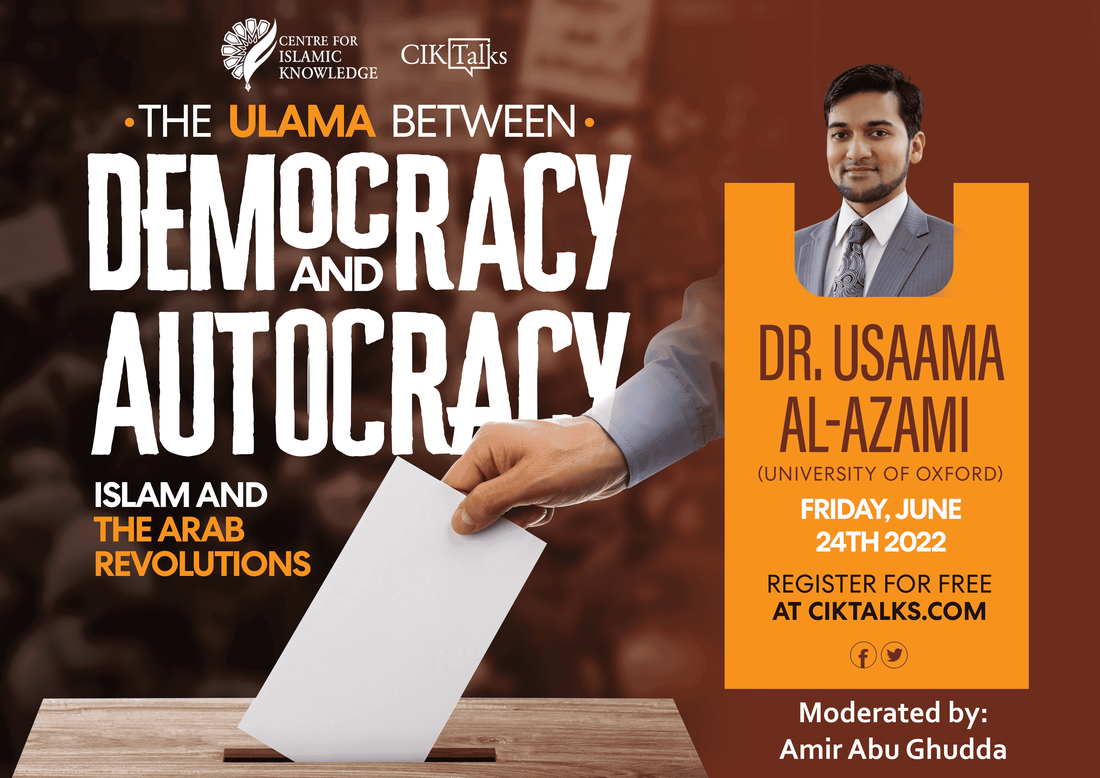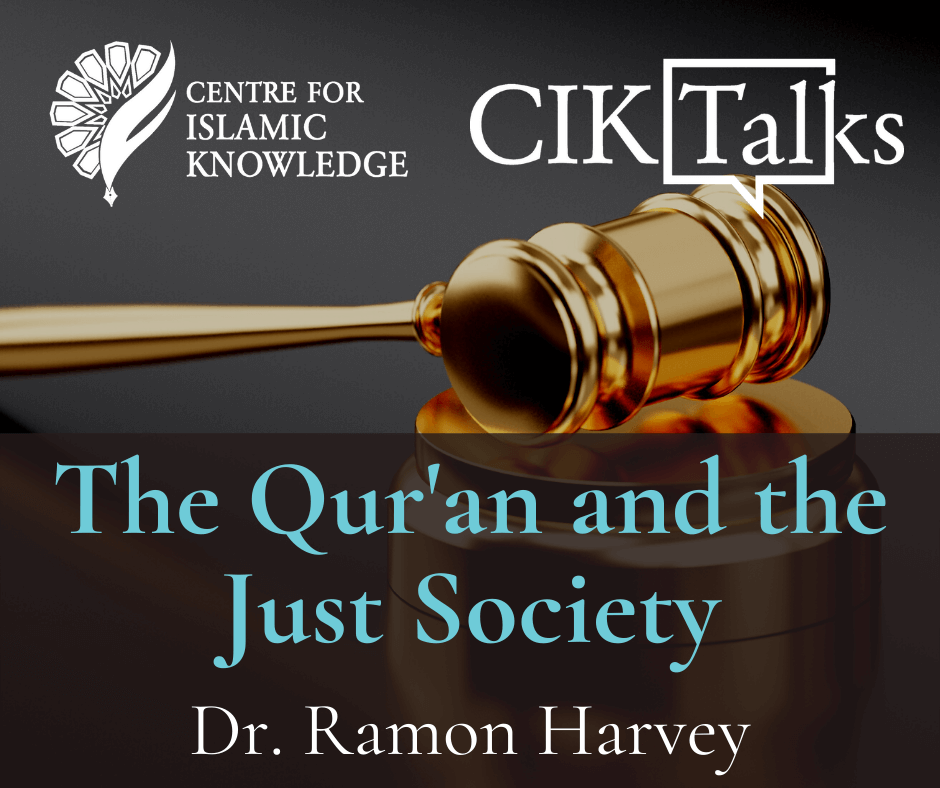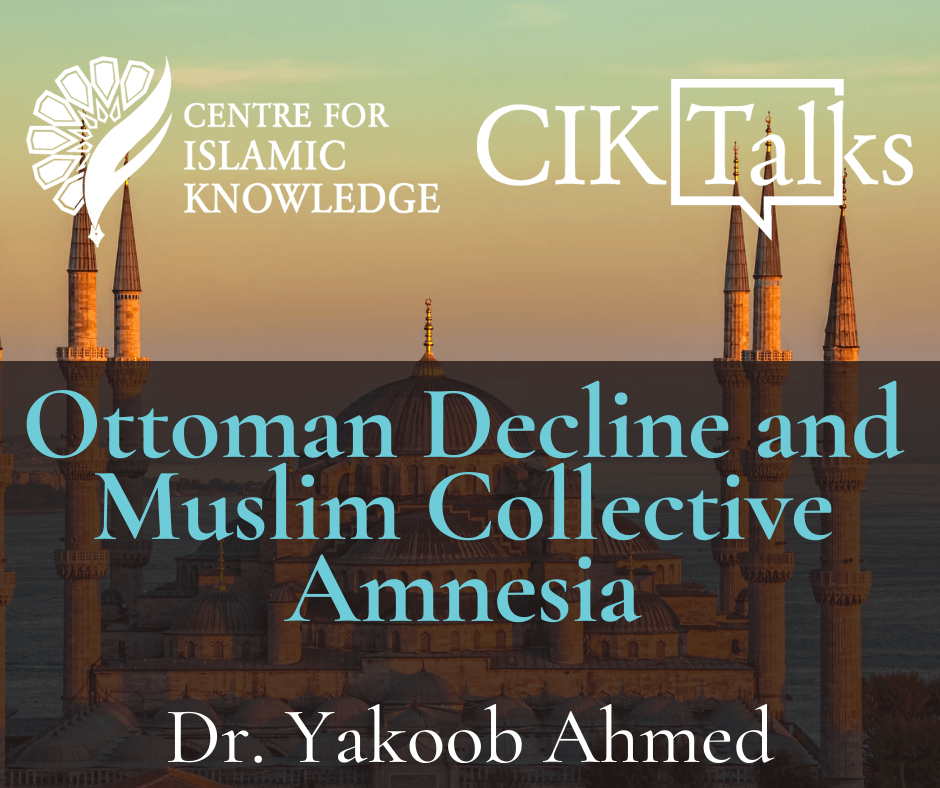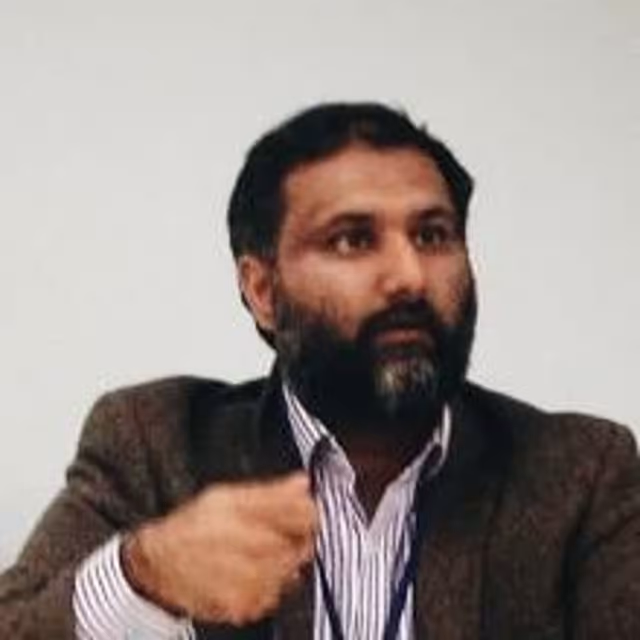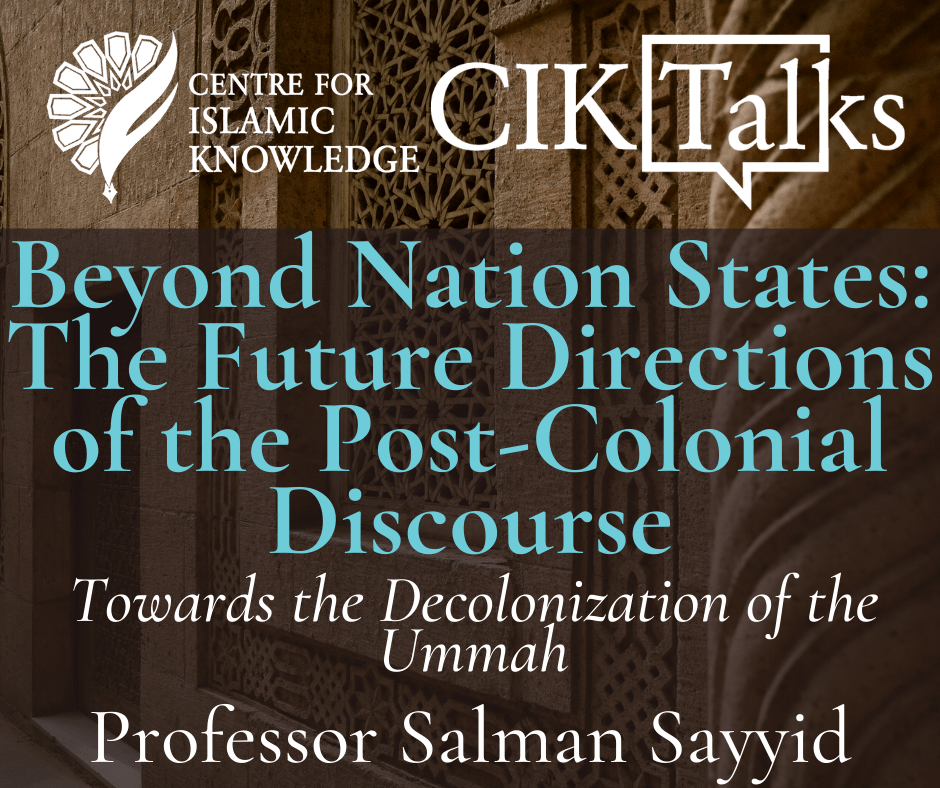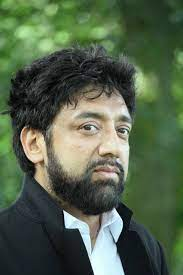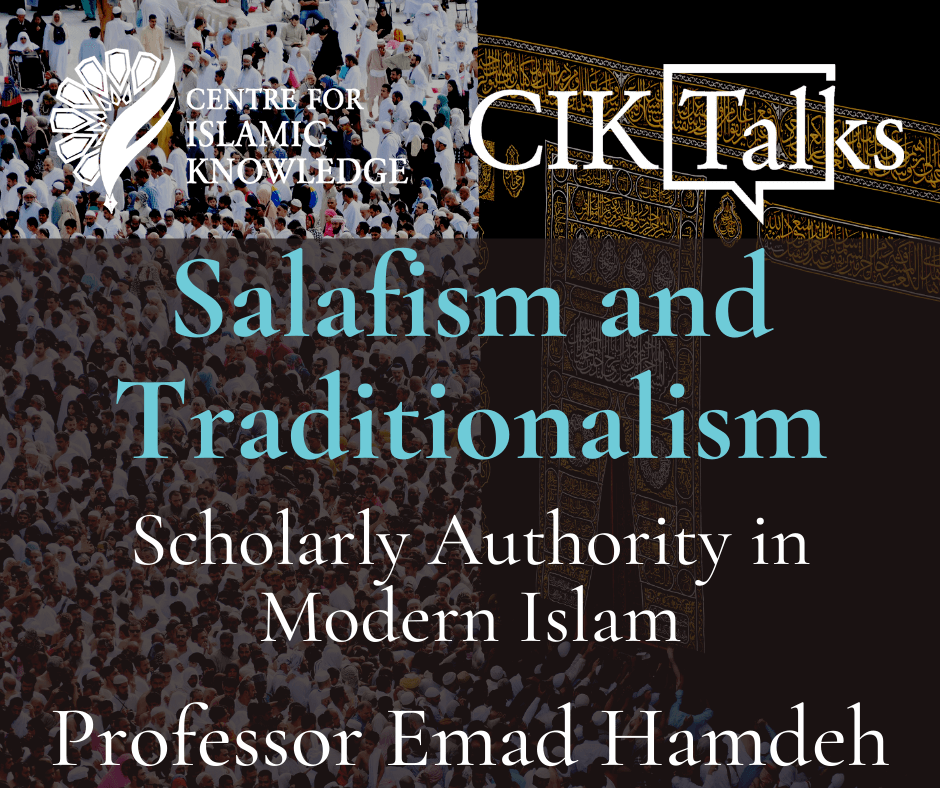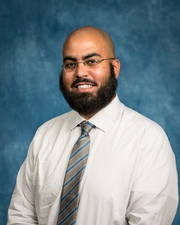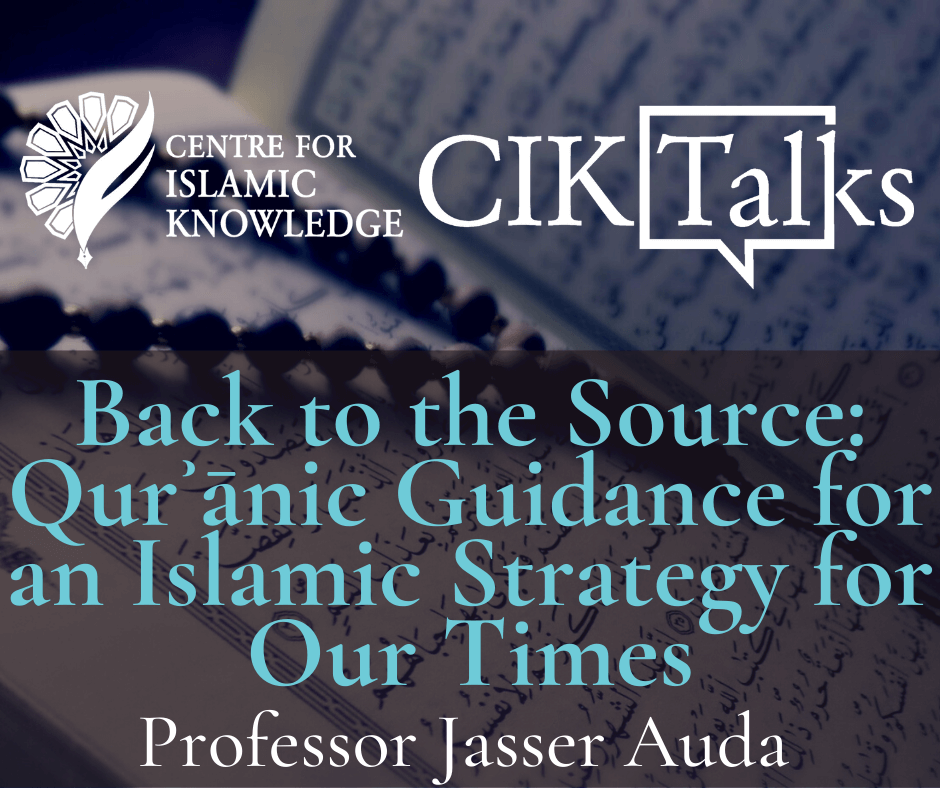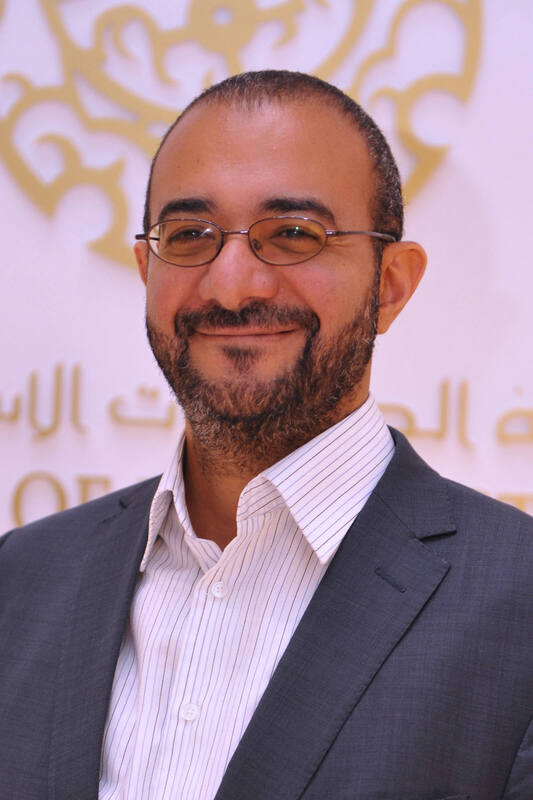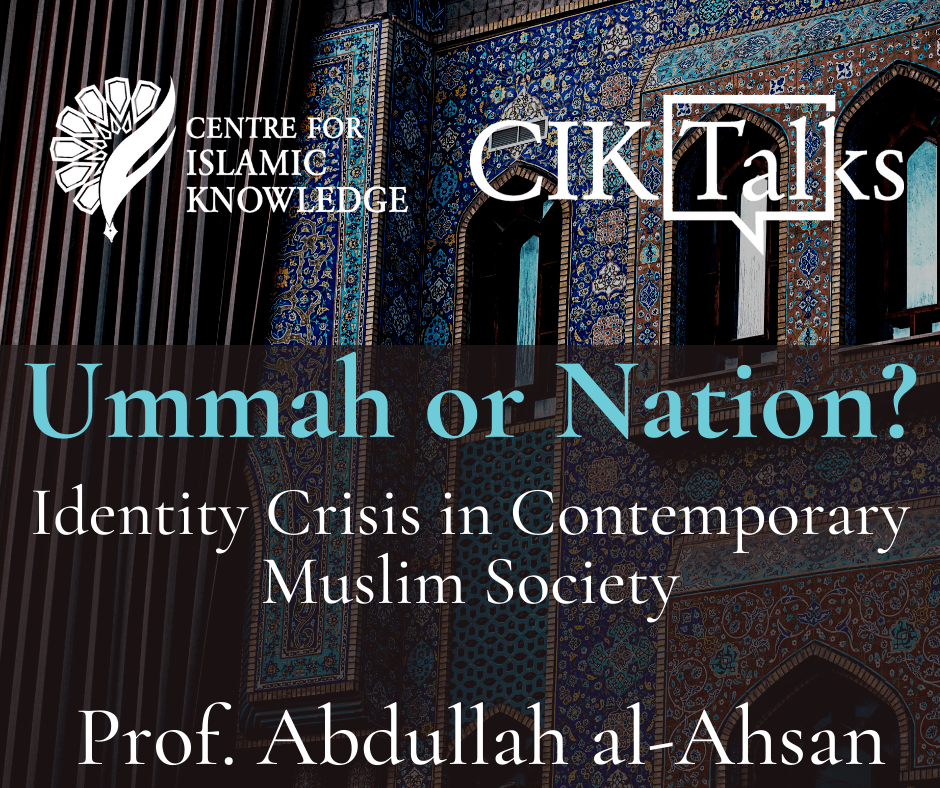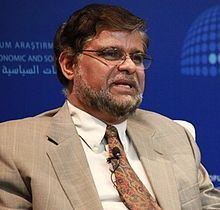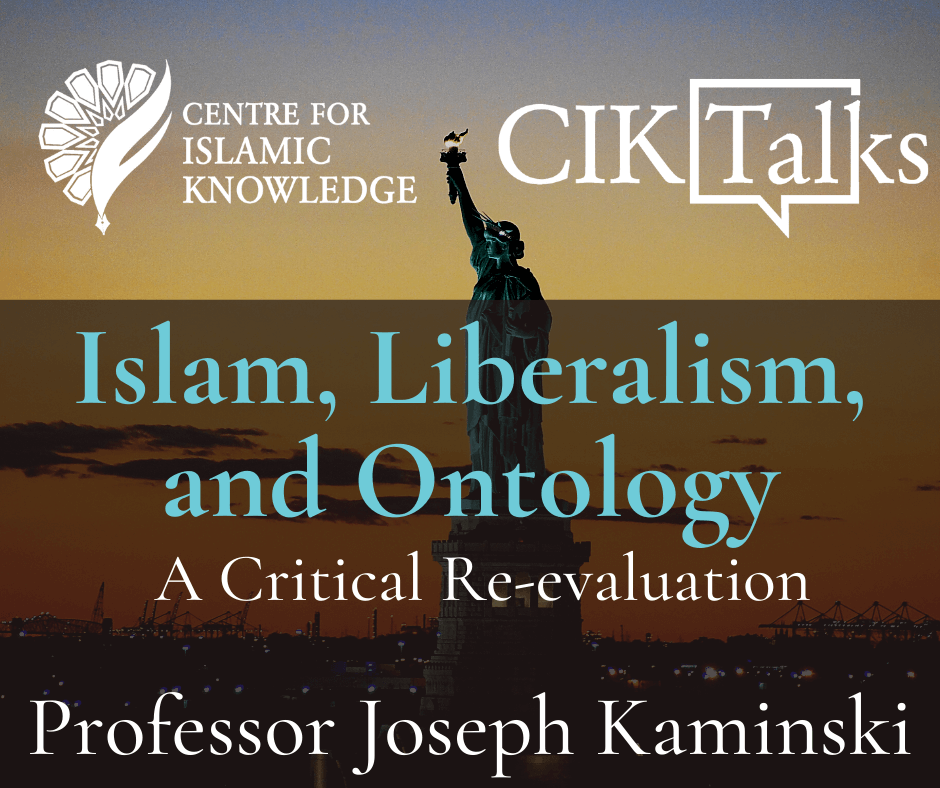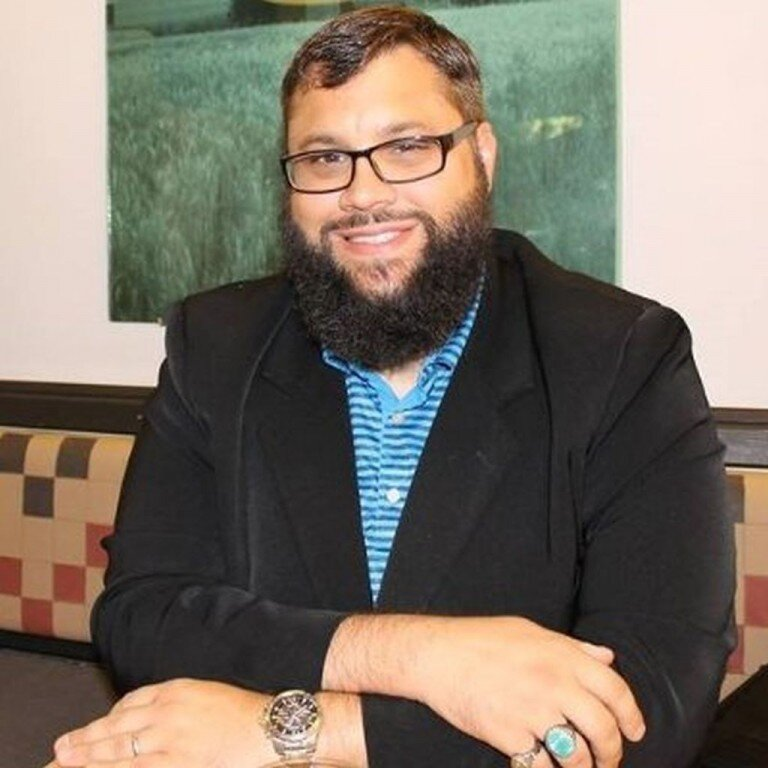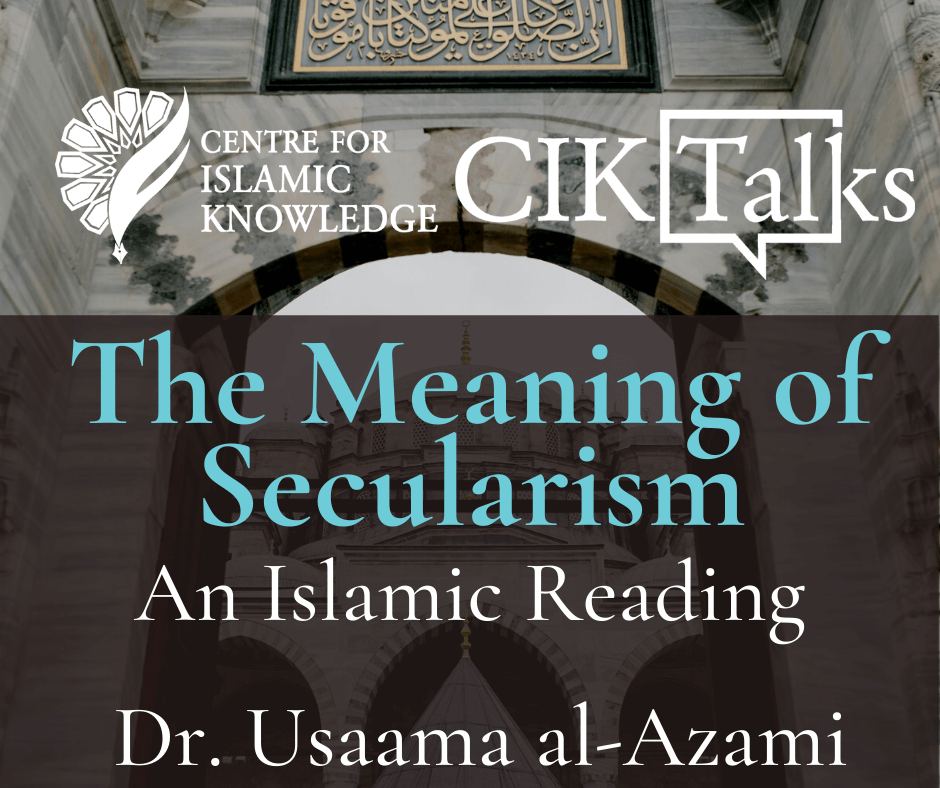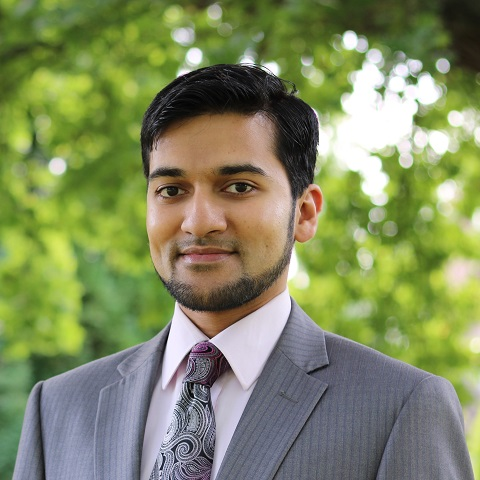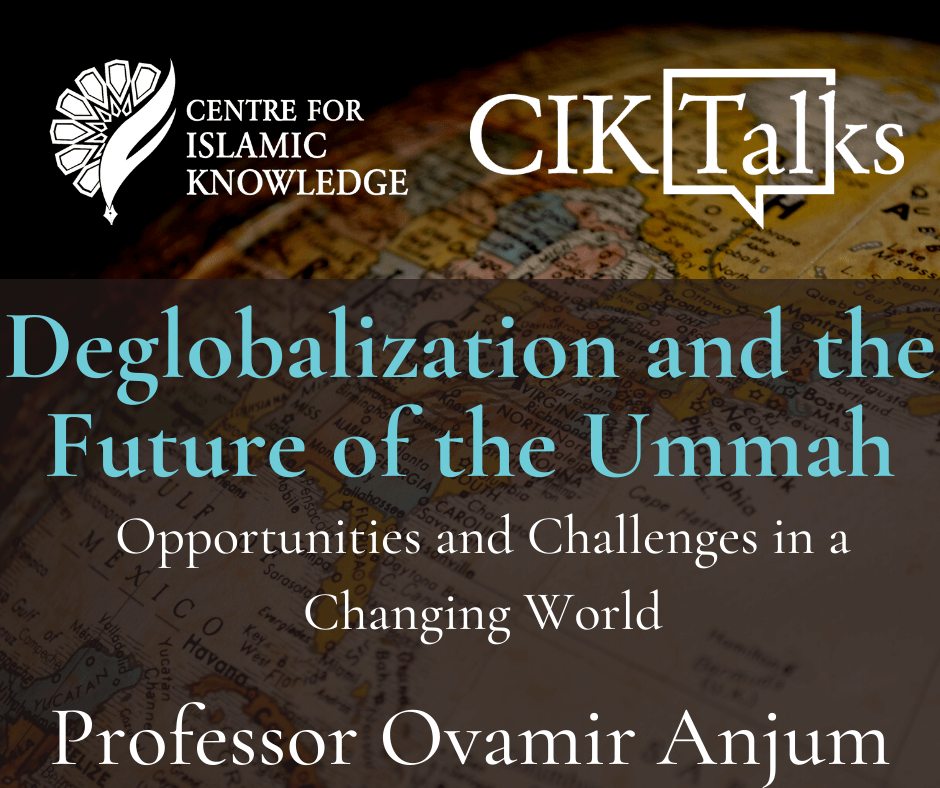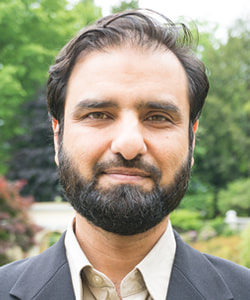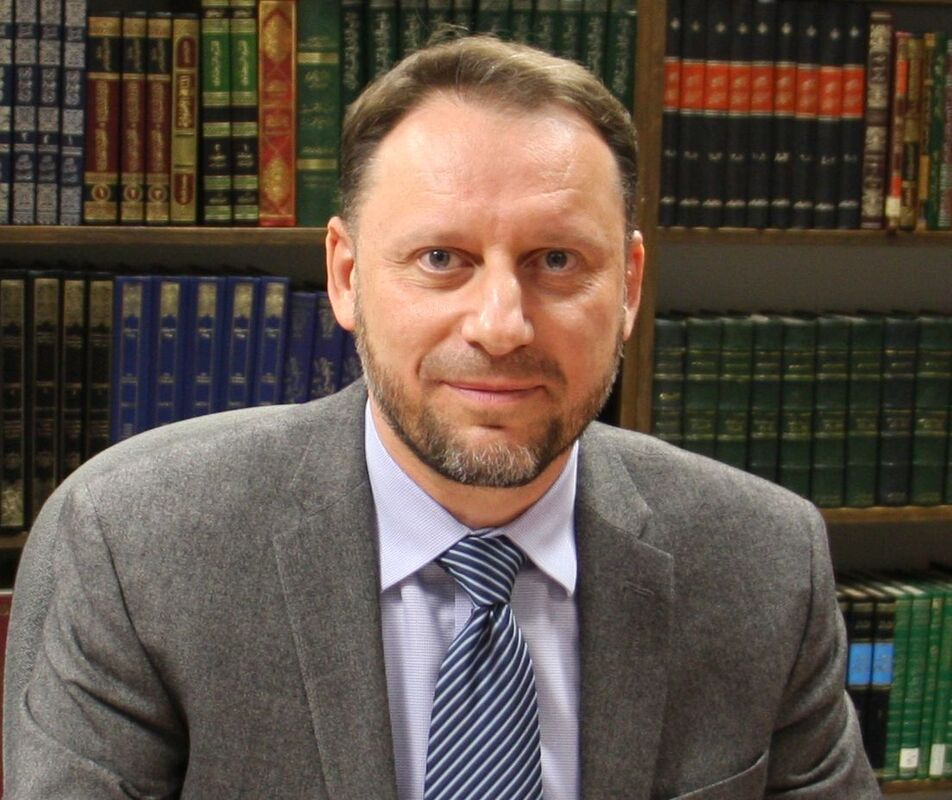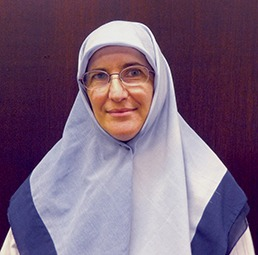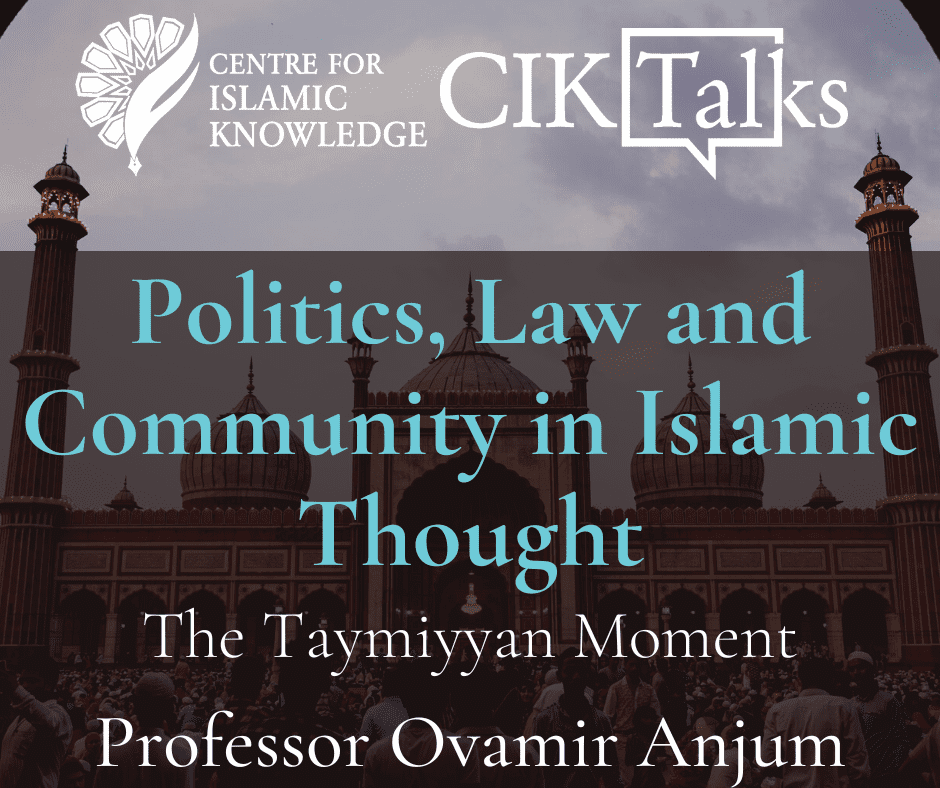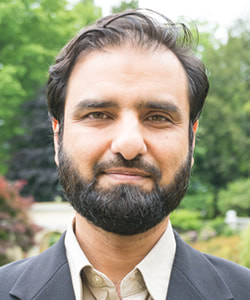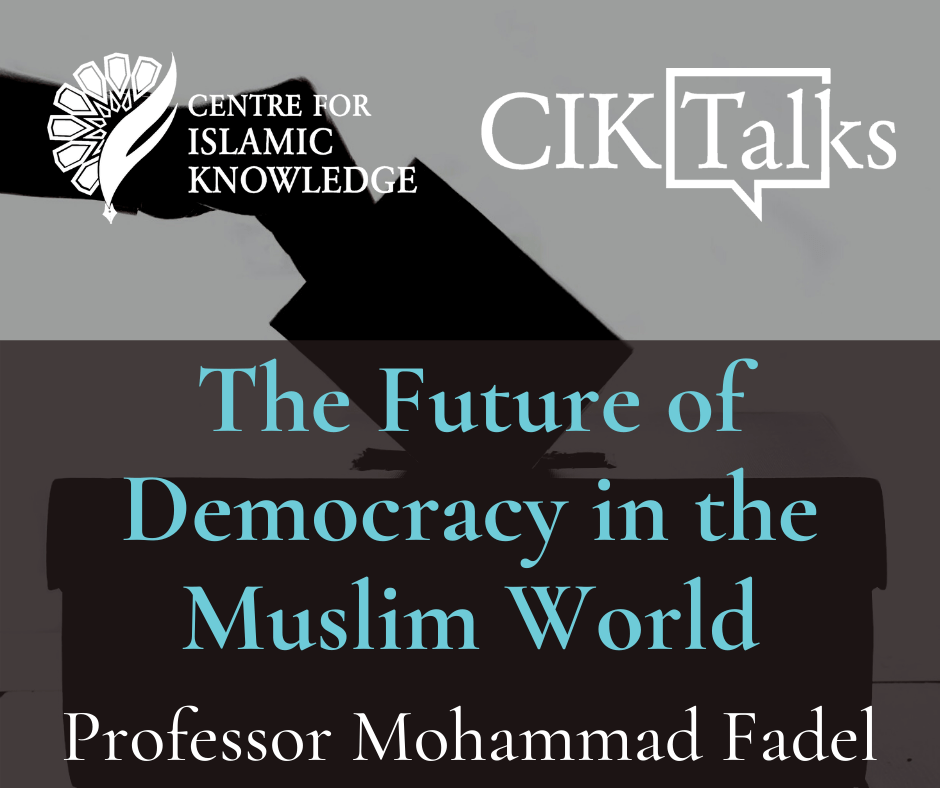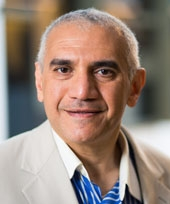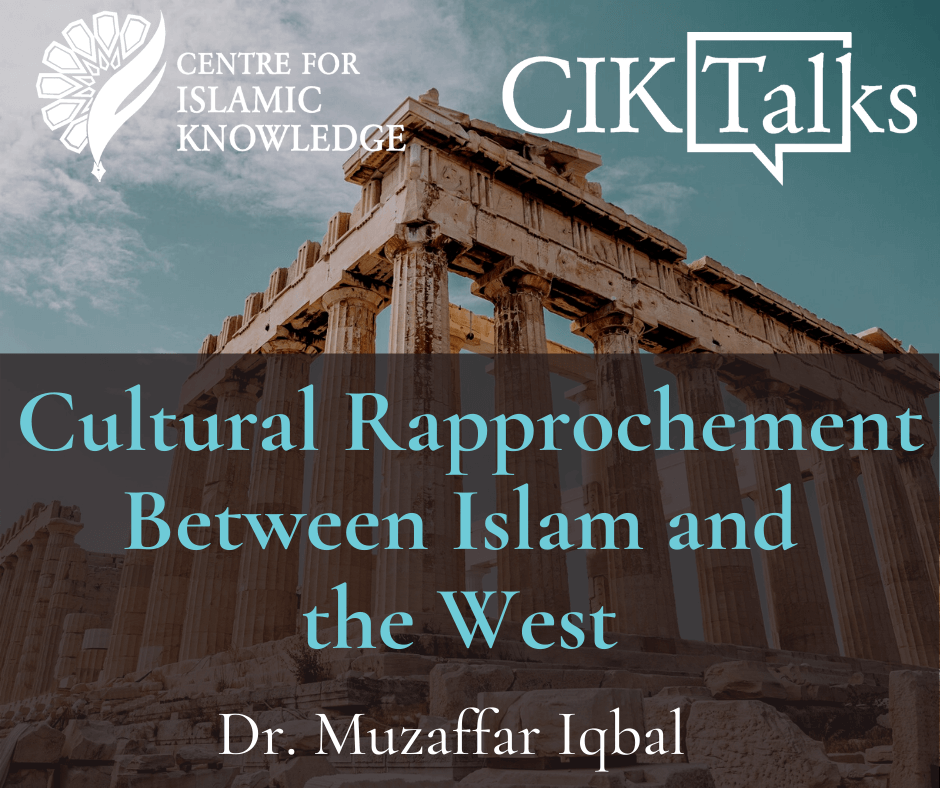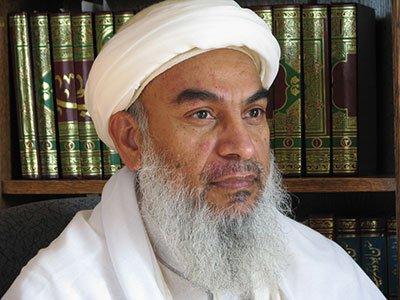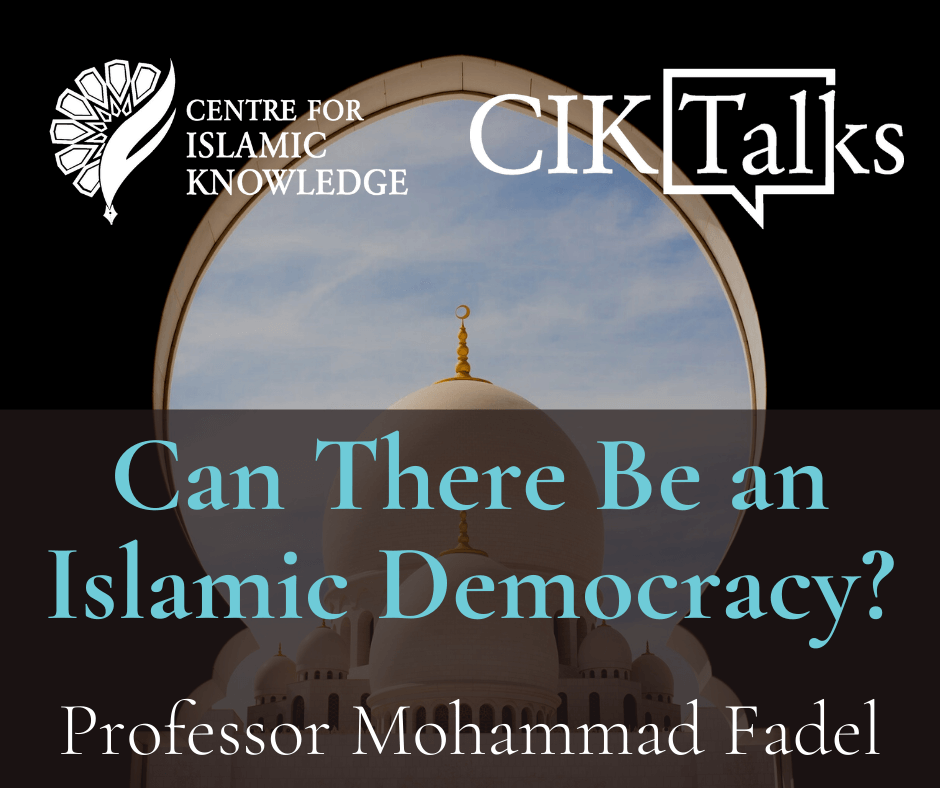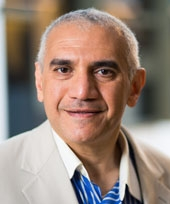Disclaimer: All views expressed in CIK Talks are those of the speaker and do not necessarily represent the teachings, views, and opinions of the Centre for Islamic Knowledge.
Mohammad Fadel's scholarship on Islamic law and legal history ranges from medieval institutions and the history of Islamic legal interpretation to urgent problems relating to the modern reception and re-assessment of Islamic legal doctrine. Fadel's intellectual concerns focus primarily on the compatibility of the Islamic legal tradition with modern liberal political arrangements, but in his research and writing he also delves into the realm of premodern Islamic legal thought and institutions. His Rawlsian approach leads him to a political reading of the Islamic legal tradition, which he accomplishes by teasing out jurists' assumptions about politics, economics, and the domestic sphere. Fadel's readings of Islamic legal sources suggest that Islamic law remains relevant to a society in which legitimate disagreements over law and morality seem intractable. At the same time, from the Rawlsian perspective he adopts, Fadel reminds us that premodern Muslim jurists formulated Islamic law also under conditions of substantial controversy over matters of law and morality, as well as over questions of religion, politics, theology, and metaphysics. The studies gathered together in this volume adroitly illustrate Fadel's interest in Islamic law as a domain of Islamic political thought and as a framework that might be deployed in today's pluralistic and secularized societies.
|
Dr. Mohammad H. Fadel is Professor at the University of Toronto's Faculty of Law, which he joined in January 2006. Professor Fadel wrote his Ph.D. dissertation on legal process in medieval Islamic law while at the University of Chicago and received his JD from the University of Virginia School of Law. Professor Fadel was admitted to the Bar of New York in 2000 and practiced law with the firm of Sullivan & Cromwell LLP in New York, New York, where he worked on a wide variety of corporate finance transactions and securities-related regulatory investigations. Professor Fadel also served as a law clerk to the Honorable Paul V. Niemeyer of the United States Court of Appeals for the 4th Circuit and the Honorable Anthony A. Alaimo of the United States District Court for the Southern District of Georgia. Professor Fadel has published numerous articles in Islamic legal history and Islam and liberalism.
|
In North America and Europe, the word “caliphate” has conjured historically romantic and increasingly pernicious associations. Yet the caliphate’s significance in Islamic history and Muslim culture remains poorly understood. This CIK Talk will exploree the myriad meanings of the caliphate for Muslims around the world through the analytical lens of two key moments of loss in the thirteenth and twentieth centuries. Through extensive primary-source research, Mona Hassan explores the rich constellation of interpretations created by religious scholars, historians, musicians, statesmen, poets, and intellectuals.
Hassan fills a scholarly gap regarding Muslim reactions to the destruction of the Abbasid caliphate in Baghdad in 1258 and challenges the notion that the Mongol onslaught signaled an end to the critical engagement of Muslim jurists and intellectuals with the idea of an Islamic caliphate. She also situates Muslim responses to the dramatic abolition of the Ottoman caliphate in 1924 as part of a longer trajectory of transregional cultural memory, revealing commonalities and differences in how modern Muslims have creatively interpreted and reinterpreted their heritage. Hassan examines how poignant memories of the lost caliphate have been evoked in Muslim culture, law, and politics, similar to the losses and repercussions experienced by other religious communities, including the destruction of the Second Temple for Jews and the fall of Rome for Christians.
A global history, Longing for the Lost Caliphate delves into why the caliphate has been so important to Muslims in vastly different eras and places.
Hassan fills a scholarly gap regarding Muslim reactions to the destruction of the Abbasid caliphate in Baghdad in 1258 and challenges the notion that the Mongol onslaught signaled an end to the critical engagement of Muslim jurists and intellectuals with the idea of an Islamic caliphate. She also situates Muslim responses to the dramatic abolition of the Ottoman caliphate in 1924 as part of a longer trajectory of transregional cultural memory, revealing commonalities and differences in how modern Muslims have creatively interpreted and reinterpreted their heritage. Hassan examines how poignant memories of the lost caliphate have been evoked in Muslim culture, law, and politics, similar to the losses and repercussions experienced by other religious communities, including the destruction of the Second Temple for Jews and the fall of Rome for Christians.
A global history, Longing for the Lost Caliphate delves into why the caliphate has been so important to Muslims in vastly different eras and places.
|
Dr. Mona Hassan is Associate Professor of Islamic Studies & History at Duke University in the departments of History and Religious Studies and the program of International Comparative Studies. She obtained her Ph.D. from Princeton University and specializes in global Islamic history. Dr. Hassan’s research and publications analyze the intersections of religion, culture, gender, and politics. Her first book Longing for the Lost Caliphate: A Transregional History (Princeton University Press, 2017) received the American Academy of Religion's 2017 Award for Excellence in the Study of Religion in the category of Historical Studies. It examines Muslim engagement with the notion of an Islamic caliphate following its loss in the thirteenth and twentieth centuries and explores how poignant memories of the lost caliphate have percolated through Muslim culture, law, and politics across Afro-Eurasia. She has also researched and published on the shifting contours of women’s Islamic legal scholarship from the emergence of the Muslim community in the seventh century to the secular interventions of modern nation-states in the present. Some of her articles in this vein reinterpret how the history of Turkish secularism continues to affect the spatial mapping and contestation of gendered religious domains in the modern Republic of Turkey.
|
